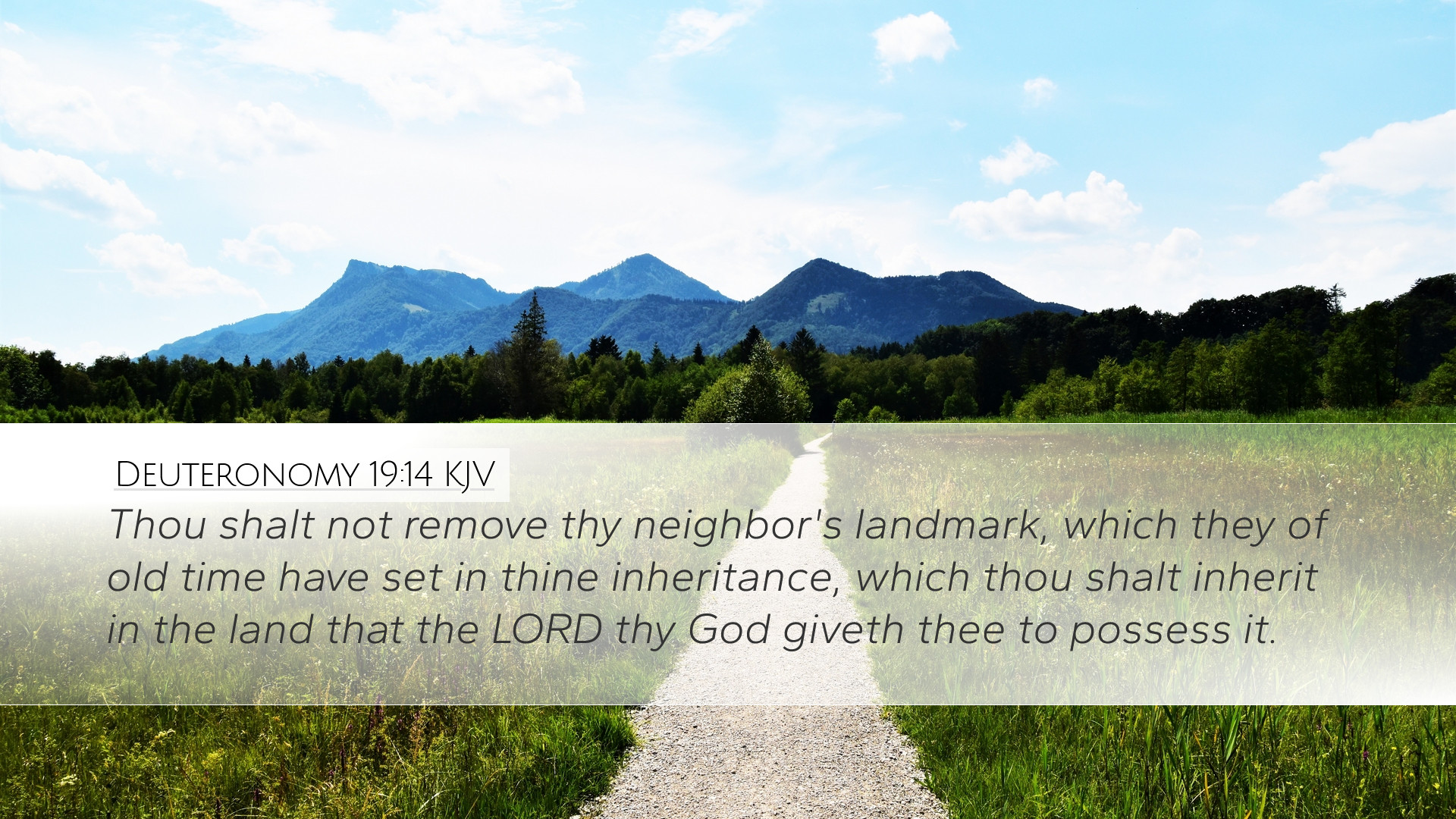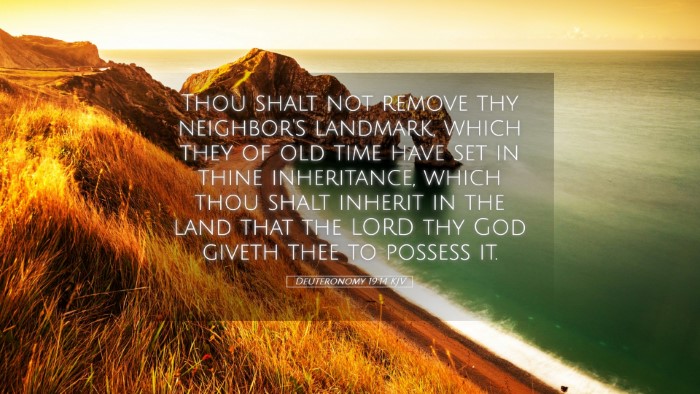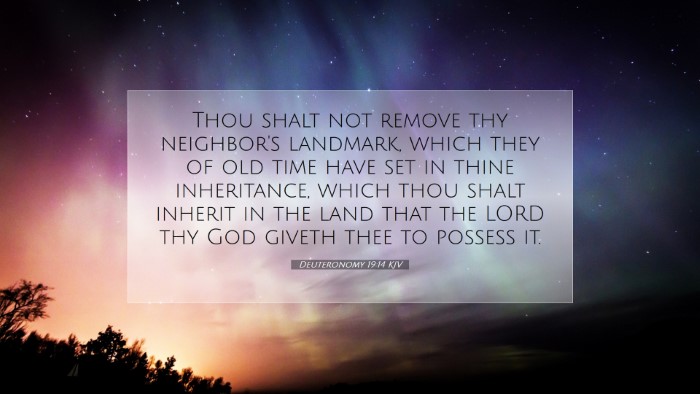Deuteronomy 19:14 Commentary
Bible Verse: "Thou shalt not remove thy neighbour's landmark, which they of old time have set in thine inheritance, which thou shalt inherit in the land that the LORD thy God giveth thee to possess it."
Introduction
This passage from Deuteronomy emphasizes the importance of property rights and the ethical treatment of one’s neighbor in the context of land ownership and inheritance. The commandment prohibits the removal of landmarks, which were vital indicators of land boundaries that defined the territorial rights and properties of the Israelites. This commentary draws insights from public domain sources, including Matthew Henry, Albert Barnes, and Adam Clarke, to explore the depth of its implications for interpersonal justice, social responsibility, and the divine order in Israel's societal framework.
Contextual Background
The Book of Deuteronomy serves as a reiteration and expansion of the laws given earlier in the Torah. Moses, addressing the Israelites at the plains of Moab, seeks to prepare them to enter the Promised Land. Here, laws concerning social justice, worship, and community responsibility are established as foundational for maintaining a cohesive society. The command against moving landmarks speaks to the integrity required among the people of God.
Commentary Insights
1. Importance of Landmarks
Matthew Henry's Perspective: Henry highlights that landmarks are not merely physical markers but represent the moral and legal boundaries established by the community. He notes that these boundaries were significant not only in civil terms but also in their reflection of God’s order in creation. Displacing these markers disrupts not only personal property but the social fabric of the community.
2. Ethical Foundations
Albert Barnes’ Analysis: Barnes elaborates on the ethical dimensions of this command. He argues that the prohibition against moving one's neighbor's landmark is a strong reminder of honesty and respect in relationships. It underscores the need to maintain fairness and integrity in dealings with others. In a broader theological sense, it aligns with the principle of loving one's neighbor as oneself, calling for a community that thrives on mutual respect and ethical conduct.
3. Social Responsibility
Adam Clarke's Commentary: Clarke emphasizes the social implications of this law. He connects the act of moving a landmark to deceit and oppression, suggesting that such actions ultimately lead to community collapse and social strife. The landmark serves as a symbol of one’s inheritance which is sacred, as it is tied to the divine promise made by God to the Israelites. By respecting boundaries, individuals uphold their part of the covenant with God and with one another.
4. Divine Accountability
All three commentators agree on the theme of accountability before God. The landmarks are seen as part of the divine order instituted by God for the well-being of society. Therefore, transgressions against this order are not only legal infractions in a human court but also spiritual ones before God. Disobedience in such matters would bring accountability to the individual and the community.
Practical Applications
- Integrity in Business and Personal Relationships: Christians are called to maintain integrity in all transactions, respecting the rights and properties of others, which reflects their character as followers of Christ.
- Social Justice: The principle behind this commandment can be extended to modern discussions of social justice, where protection of the marginalized and recognition of their rights must be prioritized.
- Community Cohesion: The integrity of community relies on the respect of boundaries. This can refer not only to physical property but also to interpersonal relationships and social contracts.
- Divine Order: Believers are encouraged to view their responsibilities as part of a greater cosmic order established by God, which requires adherence to His commands for a flourishing society.
Conclusion
Deuteronomy 19:14 serves as a poignant reminder of the value of ethical behavior in society. By prohibiting the removal of landmarks, God sets forth a principle that transcends the ancient Near Eastern context and speaks directly to the hearts of His people today. The insights from Matthew Henry, Albert Barnes, and Adam Clarke illuminate the relevance of this law, urging modern believers to uphold justice, integrity, and community well-being as they navigate the complexities of life. As pastors, students, theologians, and scholars reflect on these insights, may they find themselves challenged to advocate for a society that mirrors the justice, love, and fidelity of God’s own character.


